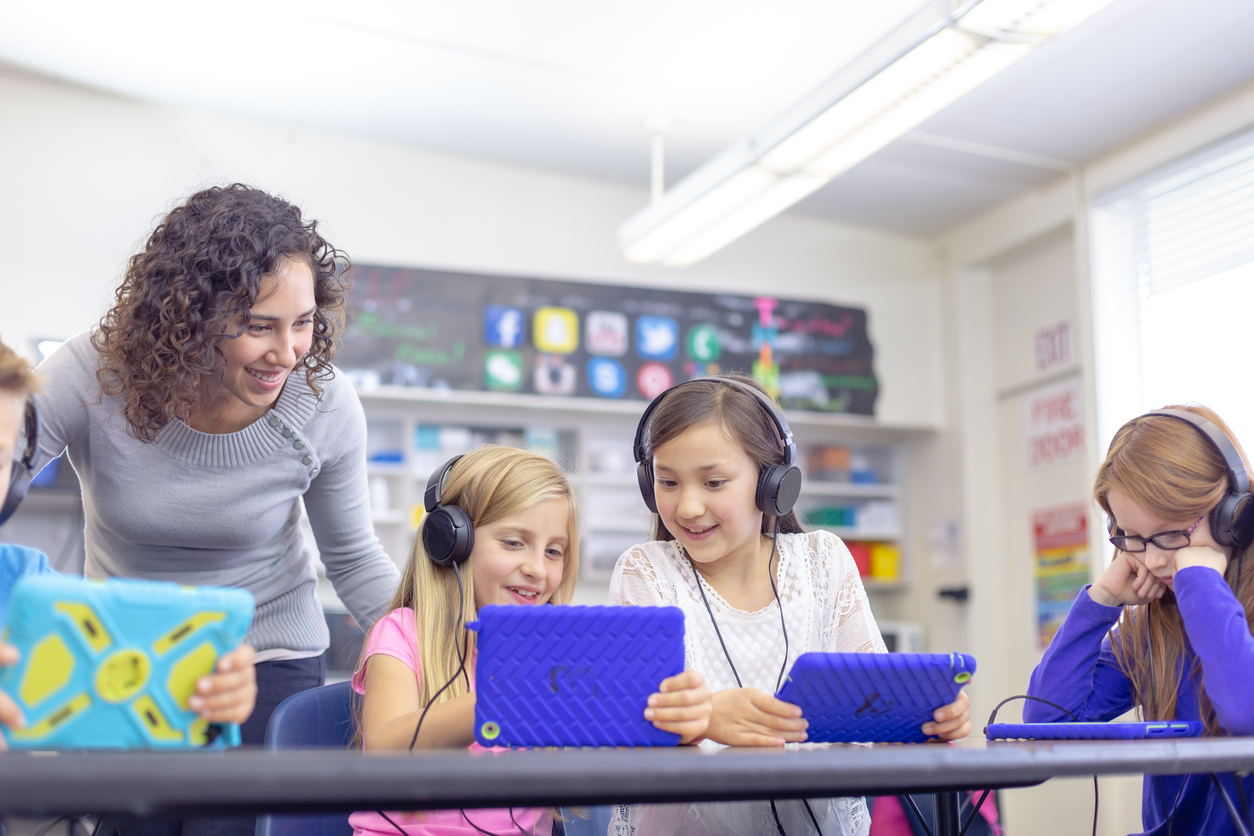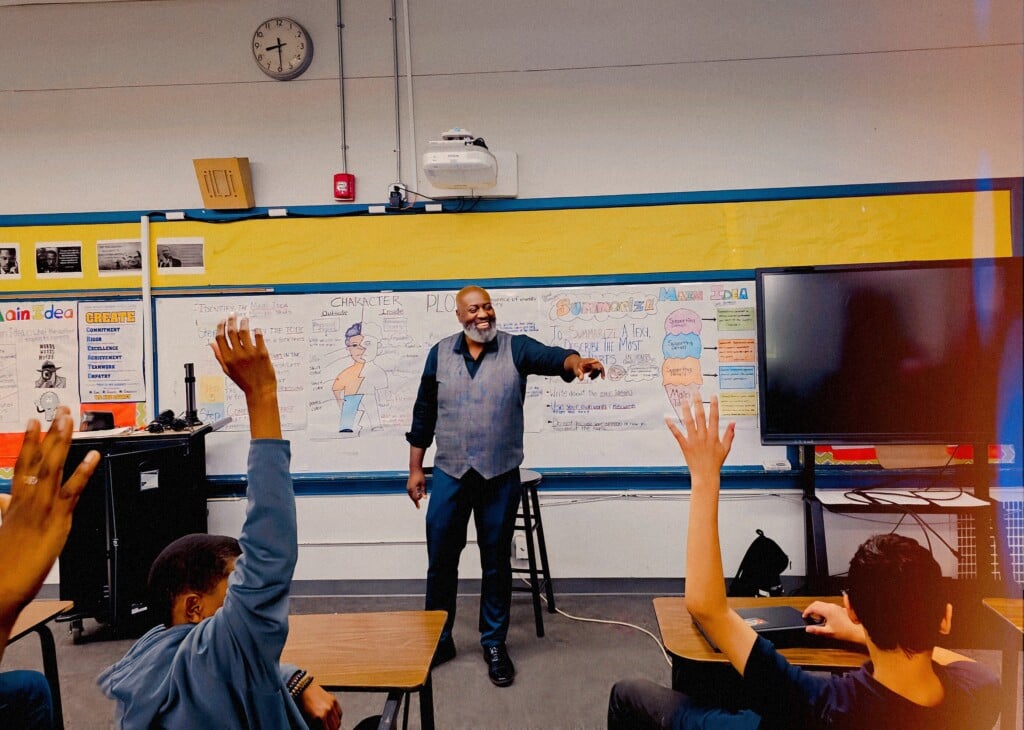Master Primary Science Concepts with Quality Tuition in Singapore
Master Primary Science Concepts with Quality Tuition in Singapore
Blog Article
Exploring the Various Mentor Strategies in Primary Science Education Today
The landscape of main science education is developing, with various training strategies getting importance in contemporary class. Inquiry-based understanding, hands-on experiments, and the assimilation of modern technology are redefining how educators engage young minds. Additionally, joint methods and set apart direction are being utilized to provide to the varied needs of pupils, improving both engagement and understanding. As we check out these methods, concerns occur concerning their efficiency and the implications for future educational techniques. What might these changes in strategy mean for the following generation of students?
Inquiry-Based Learning
Inquiry-Based Understanding (IBL) is a pedagogical approach that urges students to check out clinical concepts via doubting, examination, and hands-on experimentation. This technique highlights the function of trainees as energetic individuals in their understanding, promoting crucial thinking and analytic abilities. By involving with real-world questions, students end up being determined and interested, which improves their understanding of clinical concepts.
In IBL, educators work as facilitators, guiding students as they navigate their inquiries rather than delivering information directly. This student-centered method permits differentiation, fitting different finding out paces and styles. Students develop skills in formulating theories, making experiments, and evaluating data, which are vital for clinical proficiency.
In addition, IBL cultivates collaboration among trainees, encouraging them to share concepts and findings. This cumulative inquiry promotes social abilities and a sense of community within the class. The procedure of query encourages strength, as trainees learn to welcome failing as a tipping stone toward understanding.
Hands-On Experiments
Hands-on experiments are an essential element of effective scientific research education and learning, matching the concepts of inquiry-based discovering. These experiments enable pupils to engage straight with scientific principles, promoting a deeper understanding with experiential knowing. By adjusting materials and observing outcomes, young learners can understand abstract theories in concrete ways.
Such activities advertise critical reasoning and analytical skills, as trainees assume results, conduct experiments, and analyze outcomes. This process motivates them to ask questions, fine-tune their understanding, and develop a clinical attitude. Additionally, hands-on experiments can be customized to varied learning styles, making certain that all trainees have the possibility to engage meaningfully with the material.
Additionally, hands-on experiments often encourage partnership amongst peers, advertising synergy and interaction abilities. Operating in teams enables students to share ideas, go over searchings for, and gain from one another, which enhances their overall educational experience.
Including hands-on experiments right into the primary science educational program not just improves the finding out environment but also grows a long-lasting passion in scientific research. By proactively taking part in their education, students are more most likely to create an interest for clinical query that prolongs beyond the classroom.

Modern Technology Integration
Integrating innovation into main science education and learning has actually become significantly essential in fostering trainee involvement and enhancing learning results. Making use of electronic devices, such as interactive simulations, digital labs, and academic software application, gives trainees with opportunities to explore clinical ideas in cutting-edge means. These sources promote a much deeper understanding of complicated topics by permitting students to imagine and manipulate variables that would certainly be unwise in a conventional class setup.
Additionally, technology assimilation motivates personalized finding out experiences. Pupils can advance at their own rate, reviewing challenging principles via multimedia resources, which accommodate various discovering styles. This flexibility not only sustains specific growth yet likewise cultivates a feeling of autonomy in students.
Furthermore, innovation acts as a bridge to real-world scientific research, linking trainees with existing research and professional payments. Access to on the internet databases and scientific journals widens students' point of views on clinical inquiry and promotes crucial assuming abilities.
Collaborative Knowing
Joint discovering plays a vital duty in primary science education and learning by cultivating synergy and interaction abilities among pupils. This approach encourages learners to interact, share expertise, and engage in problem-solving, which improves their understanding of scientific ideas. By getting involved in team tasks, trainees discover to express their concepts, pay attention to varied viewpoints, and bargain solutions, all of which are crucial abilities in both real-world and scholastic contexts.

Research study shows that collective learning can cause raised motivation and engagement in science topics, as students discover satisfaction in shared experiences (primary science tuition Singapore). Furthermore, this strategy prepares students for future collective undertakings, furnishing check my source them with the skills required for efficient synergy in higher education and expert atmospheres. Inevitably, embracing collaborative knowing in key scientific research education can substantially improve the learning experience and promote a much deeper understanding of clinical questions
Separated Guideline

Separated guideline can manifest in various methods, such as differing the web content, procedures, or items of discovering. For example, teachers may use tiered projects that offer varying levels of intricacy, permitting trainees to work at their respective preparedness degrees. In addition, adaptable organizing approaches can facilitate collaboration amongst students with different capabilities, promoting peer discovering.
Evaluation plays a vital role in this strategy, as it notifies instruction and assists educators recognize each student's one-of-a-kind requirements. Developmental evaluations, such as observations and tests, can guide instructors in adjusting their methods to enhance finding out outcomes. primary science tuition Singapore. Eventually, by executing differentiated direction in key scientific research education, teachers can grow a more fair and reliable understanding this environment, equipping all pupils to reach their full capacity in recognizing scientific phenomena
Verdict
In summary, the diverse mentor strategies in main scientific research education, including inquiry-based understanding, hands-on experiments, innovation combination, joint learning, and set apart instruction, collectively add to an extra reliable learning environment. These methods promote important reasoning, analytic abilities, and a much deeper understanding of clinical concepts. By implementing these methods, teachers can produce appealing and encouraging class that resolve the diverse needs of trainees, eventually promoting a lifelong rate of interest in scientific research and boosting scholastic accomplishment.
Inquiry-Based Understanding (IBL) is an instructional approach that encourages students to check out clinical principles with doubting, examination, and hands-on trial and error.Collaborative understanding plays an important function in key science education and learning by promoting teamwork and communication skills amongst trainees.Research study indicates that joint discovering can lead to boosted motivation and engagement in scientific research subjects, as pupils discover enjoyment in common experiences.In promoting a comprehensive discovering Learn More Here environment, set apart guideline emerges as a vital method to accommodate the diverse needs and capacities of trainees in key science education and learning. Ultimately, by applying distinguished direction in key science education and learning, teachers can grow a more fair and reliable knowing setting, empowering all trainees to reach their complete possibility in comprehending clinical phenomena.
Report this page